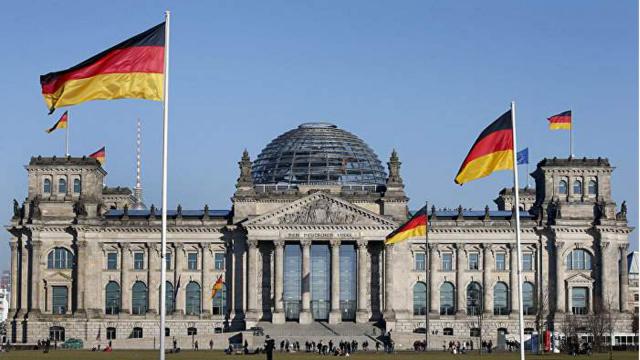The crisis in government formation in Germany

After World War II, the government has become a tradition of governing the democratic politics of Germany. Despite differences of opinion and differences among the various political groups, since 1949, the postwar generation of Germany has been accustomed to this kind of government system. But after eight weeks of election-related elections, the possibility of forming the government has broken up for potential parties.
On 24 September, in the 19th parliamentary elections in Germany, 42 teams participated in the main contest, but the main challenge was between the two main parties of the ruling Coalition Party, Christian Democratic Union and the Social Democratic Party. They ruled the country for four years at the same time, but during the election they faced each other. But it was outside the opposition party, the Left Party, the Environmental Green Party, the Liberal Democratic Party, and the hardliner right-wing alternative for Germany.
In order to form a coalition government, the ruling Democratic Party and the Environmental Green Group, which joined the ruling coalition, the Christian Democratic Union Party and the Christian Social Union Party, and the party returned to parliament after eight years. The reason for the formation of the government was disturbed by the fact that no party is saying clearly because of their responsibility. However, the discussions were disrupted because the Free Democratic Party or the Liberal Democratic Party. The president of this group, Christian Linden, suddenly left the discussion and said, "It is better not to share the rule of governance than governing the country in a wrong way."
Due to the fact that the party will not be able to establish the interest of the pro-rich groups after assuming power, it seems to have left the discussion
Being For a long time the German Democratic Union of Chancellor Angela Merkel, the supporter of the capitalist and conservative party in Germany, is in power, but their economic, social and humanitarian politics in Germany is much more liberal than other European capitalist countries.
Apart from the environmental groups of the four groups which are in the process of forming coalition, the other three groups are synonymous with capitalism and wealthy groups. In addition, the Conservative Christian Democratic Union president and current Chancellor Angela Merkel is considered to be very modern and human.
For 12 years, the ruling Chancellor Angela Merkel is very popular with her party and the people in her country and is known as leading leader in maintaining the euro currency, including the European Union and promoting the market. When Europe's major countries are struggling to control the state budget and retain the previous growth, the growth of capital in Germany, record earnings in the export sector, and the increase in purchasing power are increasing. In a word, the economy of Germany is moving forward. Yet, in one of the statistics, 70 percent of people think that the economic success of Germany is not being shared equally. With the decision to stop nuclear fuel, its environmentally friendly politics is well known.
Germany's President Franck-Valter Stainmeyer said after the negotiation was over in Germany, that such a deadlock was created in the formation of the government 70 years ago and that history should not be forgotten or buried. The responsibility of the country and the people you have been elected by the people, the responsibility of forming the coalition government
He needs to make new efforts, he said. He has already started discussions to find a possibility to form a coalition government with different parties.
Note here that the former president of the historic Verma Republic of Germany, Friedrich Ebert, after the death of Progressive Social Democrats and the Left, and the failure to form the government, the conservative and Nazi candidate former Field Marshal Huddenburg was elected president. Adolf Hitler came to power with the hands of field Marshal Hitchenburg in 1933. And recalled that the current German president Frank-Wellter Steinmayer According to the German Constitution, the president is not a powerful post, but the most honorable minister, and the counselor and proponent of such political and constitutional crisis.
Martin Shulz, the leader of the second largest party in Germany and the current ruling coalition partner, Social Democratic Party, said he would not go to power again after the September 24 election. In addition, if the second largest party in the election, the Social Democratic Party joins the coalition government, the third-largest party, the hardline right-wing Alternatives for Germany, is not considered as an opposition party in the German parliament, it is not even seeking the Social Democratic Party. However, pressure is increasing for the party to re-join this crisis.
According to the constitutional obligations of Germany, the new parliament session and the election of the speaker will be completed on 24th of October after the election of 24th September. Although the discussion of forming a four-party coalition government in the political crisis has been broken, the other three parties can form a minority government jointly, instead of leaving the Free Democratic Party. In that case, the Social Democratic Party will have to support the coalition government even without being in power. In the end, the President will break the parliament and re-elect it within 60 days and until the new election, the current Chancellor Merkel will be in power.
Concerned over the formation of a government in Germany, the problem of unresolved issues such as the European Union, the emergence of right-wing parties, refugees etc. will be further lagged behind. In germany